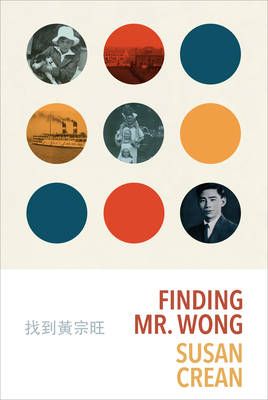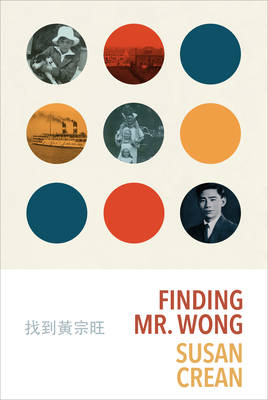
- Retrait gratuit dans votre magasin Club
- 7.000.000 titres dans notre catalogue
- Payer en toute sécurité
- Toujours un magasin près de chez vous
- Retrait gratuit dans votre magasin Club
- 7.000.000 titres dans notre catalogue
- Payer en toute sécurité
- Toujours un magasin près de chez vous
Description
Susan Crean's memoir Finding Mr. Wong chronicles her effort to piece together the life of the man she knew as Mr. Wong, cook and housekeeper to her Irish Canadian family for two generations. Reminiscing, Crean writes, "I grew up in Mr. Wong's kitchen ..."
A Chinese Head Tax payer hired by Crean's grandfather in 1928, Wong Dong Wong remained on the job following Gordon Crean's death in 1947. Mr. Wong eventually retired in 1965 and moved to Chinatown. Crean's homage weaves the various strands of her memories of and discoveries about Mr. Wong during the last 25 years of his life; she travels the streets and histories of Chinatowns in Vancouver and Toronto, Canada, and twice she visits Guangdong, China, where she located his home village, found descendants of his father's brother, and learned the beginning of his story: orphaned as a newborn, then brought to Canada by his uncle, Wong YeeWoen. At the core of the narrative are Crean's observations of the blurred lines between numerous socio-cultural dynamics (worker/employer, family/servant, child/adult). She particularly considers relationships that cross race as well as class. Beginning with the partnership formed by Crean's grandfather and Mr. Wong - a partnership whose long alliance and evident mutual regard guaranteed Wong's presence in Crean's own story - she relates her own experience grappling with racism as a small child in the Vancouver of the 1950s and 1960s. Crean's exploration also considers memory and its role in the writing and researching of a book such as this. She meditates on the ways socio-cultural issues are represented (or not) in film and literature, ultimately combining fiction with historical recreations and memoir. Finding Mr. Wong is an important contribution to a growing body of writings that illuminate the lives of people silenced or otherwise negated by myopic history.Spécifications
Parties prenantes
- Auteur(s) :
- Editeur:
Contenu
- Nombre de pages :
- 272
- Langue:
- Anglais
Caractéristiques
- EAN:
- 9781772011944
- Date de parution :
- 31-07-18
- Format:
- Livre broché
- Format numérique:
- Trade paperback (VS)
- Dimensions :
- 137 mm x 213 mm
- Poids :
- 362 g







